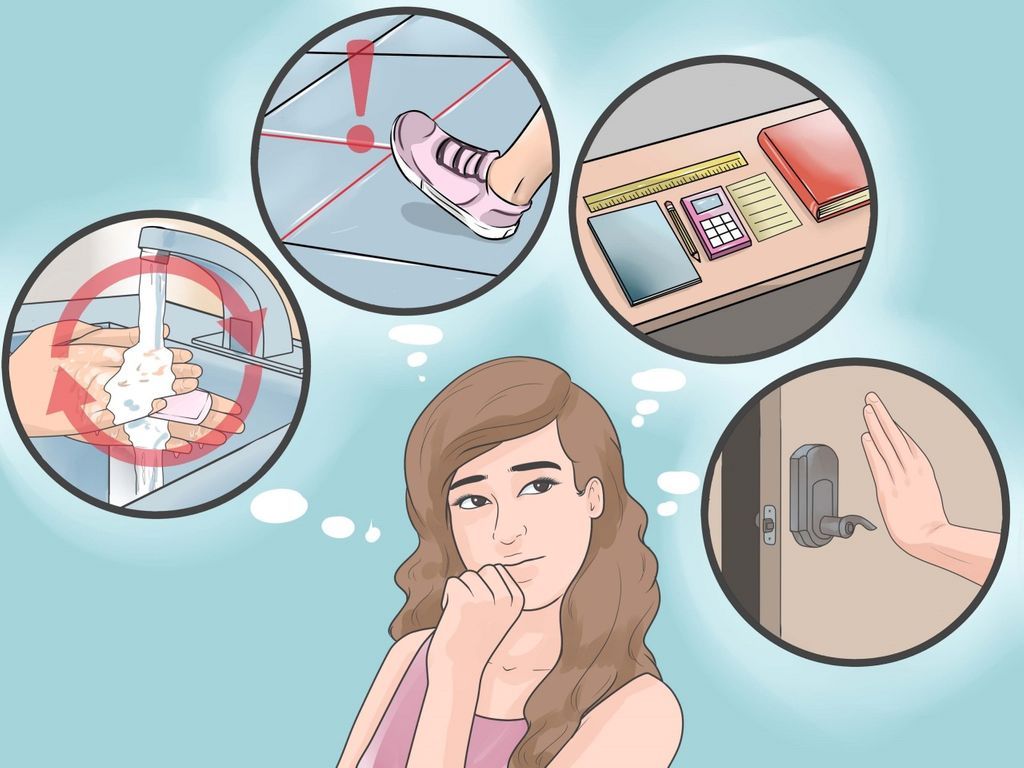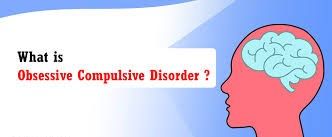What Is Ocd? Its Meaning, Symptoms, And Treatment
Feb 14, 2020 • 1132 views

Meaning of OCD?

OCD means Obsessive-Compulsive Disorder. It is a common and long-lasting disorder in which a person has uncontrollable, recurring unwanted thoughts, ideas, or sensations over and over again that make them feel driven to do something repetitively. OCD is a mental health disorder characterized by discomforting, invasive, compulsive physical or mental acts, obsessive thoughts, and repeated acts.
Many people with OCD recognize that their obsession is not realistic. Therefore, they feel a strong need to perform repetitive behavior or mental compulsions. OCD can be chronic, and it can affect a person’s daily activities like schoolwork, job, family, and social activities. Proper treatment of OCD can help sufferers recover and control the illness and relief from the symptoms.
If you are facing OCD and want the best treatment in Jaipur by the psychiatrist in Jaipur, then you should visit the Jain neuropsychiatry clinic. Dr. Sanjay Jain (Jain neuropsychiatry clinic) is the best mental care specialist and the best psychiatrist in Jaipur (manochikitsak doctor in Jaipur) hospital.
According to WHO, OCD is the tenth leading cause of disability, and in the case of women aged between 15-44 years, OCD is at the 5th position.
Symptoms of OCD:
Some people who face OCD might hide their symptoms because of fear of embarrassment. Their family and friends notice some physical signs and symptoms:
Excessive doubt and fear of making a mistake.
Aggressive or horrible thoughts that harm yourself or other peoples.
Distressing Sexual thoughts and disrespectful scenarios.
You are always in doubt that you have locked the door or turned off the stove.
Stress when things are not in an orderly and proper way.
Anxiety for contamination of dust.
Silently repeating a word or phrase.
Constantly hand washing.
Causes of OCD:
The condition might be triggered by genetic, cognitive, behavioral, neurological and environmental factors.
1. Genetic Causes:
OCD is genetic, and it can run in families. It can be considered as a “familial disorder, and you are at higher risk when you have a close relative person with OCD, then you have higher chances of getting OCD.
2. Cognitive Causes:
The cognitive theory focuses on how people with OCD misunderstand their thoughts. A person who is caring for an infant and under pressure may have an intrusive thought, of harming the infant either intentionally or accidentally.
3. Behavioral Causes:
This cause states that OCD symptoms are developing negative thoughts and behaviors.
4. Neurological causes:
It develops to link between OCD and differences in the frontal cortex and the subcortical structure of the brain. Hormones such as serotonin, glutamate, and dopamine may also be involved.
5. Environmental causes:
According to research, OCD behaviors could be learned from a stressful event, a serious disease from contamination.
Types of OCD:
There are many types of OCD. It has been considered that a person with OCD will face one of these five main categories.
1. Checking:
There is a necessity to check something becomes a compulsion. Common checking compulsion and obsessive fear include water tap,re-reading texts, pregnancy.
2. Contamination:
Contamination is an obsessional worry, a fear of dirty things or a compulsion to clean it. Common contamination obsessive worries include worrying about germs and sickness, physically or mentally feeling dirty or unclean.
3. Ruminations :
Ruminations are a type of term used to describe all obsessional intrusive thoughts and some of these types of ideas might be disturbing or violent.
4. Symmetry and ordering:
In this everything lined up symmetrically “right” is this compulsion, the symptoms include in this: a need for symmetry or organization in items, having everything neat and at proper place at all times, and have things lined up in a certain way.
5. Forbidden thoughts:
Forbidden thoughts symptoms may include frequent intrusive thoughts like sexual or violent, worrying about harming yourself or someone else without any reason, feeling guilt, shame about your thoughts.
How is OCD diagnosed?
If you and your family member or your loved ones, have OCD symptoms talk to a mental health care provider. They can diagnose your OCD symptoms and provide the best effective treatment.
The best psychiatrist will ask you about the symptoms you experience. Diagnosis of OCD requires that symptoms affect your daily activities and at least consume an hour of your day. Your psychiatrist will note all your OCD symptoms, and it will help them to make the proper diagnosis and provide you with the best possible treatment.
Treatment of OCD:
The symptoms of OCD can be reduced by treatments. A psychiatrist doctor in Jaipur will suggest the minimum use of medication in the procedure, much like Dr. Sanjay Jain’s approach. Therefore, one should prioritize therapy sessions during treatment. Cognitive behavioral therapy (CBT) and medications remain the most effective ways to manage OCD in Jaipur.
OCD treatments usually include medication, talk therapy, or both depending on the patient’s state. At Jain Neuropsychiatry Clinic, we have the expertise of OCD treatment by the famous psychiatrists in Jaipur to help patients overcome OCD symptoms.
First-line treatments will include:-
1. Cognitive-behavioral therapy:
Cognitive-behavioral therapy is an effective method for the treatment of OCD. CBT is a type of psychotherapy. Its goal is to help individuals change their way of thinking, feel, and behave. It consists of two treatments
Exposure and response prevention (ERP)
Cognitive therapy
Studies say that 75% of people with OCD are significantly helped by CBT.
2. Selective Serotonin Reuptake Inhibitors(SSRIs)
There are many types of drugs for treating OCD. Some SSRIs that may be prescribed for OCD treatment in Jaipur are:
clomipramine
fluoxetine
fluvoxamine
paroxetine hydrochloride
sertraline
Citalopram
Conclusion:
If you and your family members are suffering from OCD symptoms and want the best treatment by a psychiatrist in Jaipur, then you should consult Dr Sanjay Jain. He is the top psychiatrist in Jaipur. Dr. Sanjay Jain provides the best treatment by cognitive behavioral therapy and other modern ways.
FAQs:
1. Is OCD a mental disorder?
Obsessive-compulsive is a condition of mental disorder. It consists of two parts: Obsessions and Compulsions. Obsessions are unwanted thoughts, images, a lot of distress that doesn’t go away.
2. Is OCD controllable?
OCD symptoms have compulsions and obsessions that can’t be controlled without treatment. Most OCD patients have both compulsions and obsessions, and some have one or other.OCD symptoms regularly occur without warning signs, and people think they can’t control them.
3. Treatment offered by Dr. Sanjay Jain?
You can get these treatments at one place only:-
depression
anxiety
drug addiction
depression counseling
headache and migraine
schizophrenia
anxiety disorder
child psychological problems
psychotherapy
social phobia
substance abuse disorder
old age psychiatry
memory clinic
psychosomatic disorder
